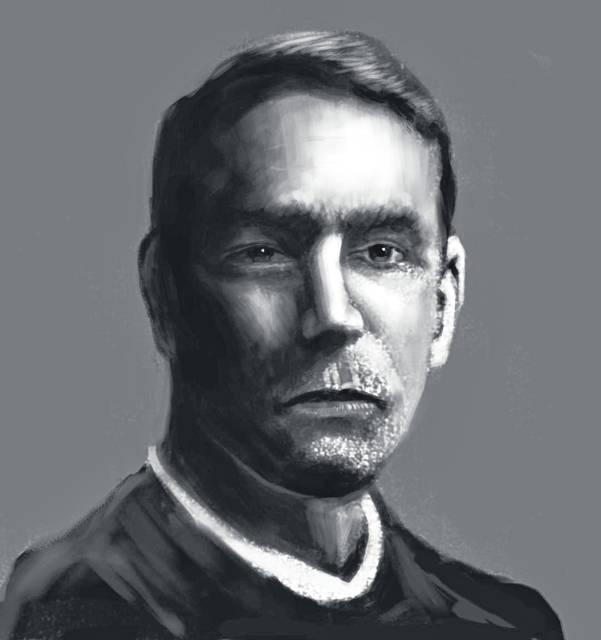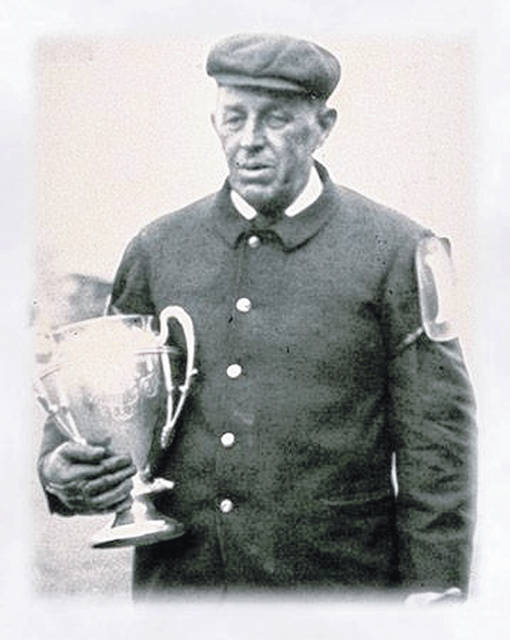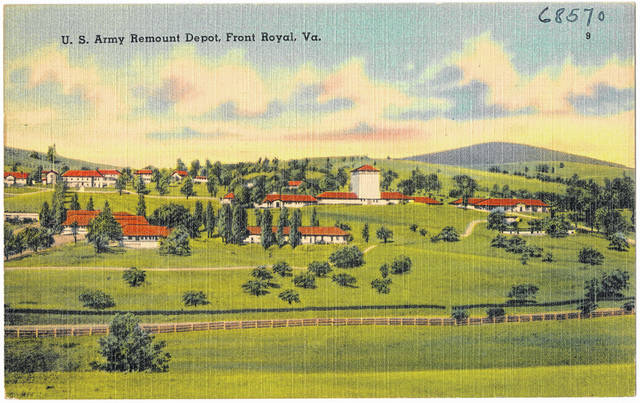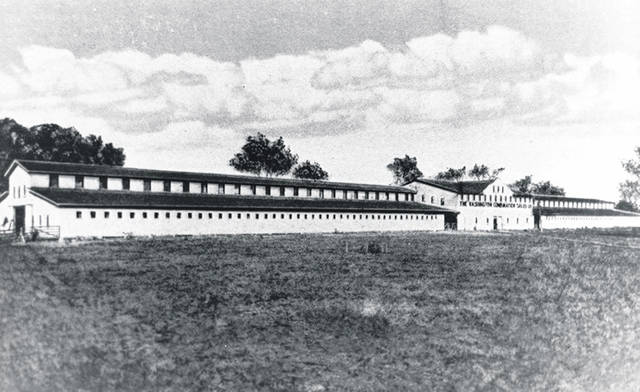



In the first quarter of the 20th century, Charles Allen was sometimes called the “Tin Man,” a nickname given him for owning a stove and furnace store on West Court Street. He was also a breeder and owner of Standardbred racehorses and the owner of several Fayette County farms. He resided with his wife, son, and daughter in a spacious home at Wesley Chapel near Brookwalter.
Charles Allen learned the horse business from his father, James Allen, the proprietor of the Springdale Stock Farm near Derby, Ohio. The farm was purported to be the Buckeye State’s largest Standardbred nursery. After the death of his father in 1914, Charles became the sole owner of the Springdale Farm, which produced Judge Ormonde (2:01½), one of Ohio’s swiftest and most popular pacers in the teens last century.
Allen trained his trotters and pacers at the Fayette County Fairgrounds; for many years, he was in charge of the racing programs at the Fayette County Fair. He was one of the founders of the Washington Sales Company that built the large sales barn on Dayton Avenue in 1906. In early 1914, he purchased the sales barn and held seven horse auctions and three horse shows there before selling the building and grounds to Sunlight Creameries in 1919.
Ohio’s agricultural leaders knew Charles Allen as a progressive farmer, a successful horseman, and a talented organizer. These qualities resulted in Governor Frank Willis appointing him to a three-man commission responsible for planning Ohio’s exhibits at the Panama-California Exposition, held in San Diego in 1915 and 1916 to celebrate the opening of the Panama Canal. Willis said he made the appointment to ensure that Buckeye State agriculture would be thoroughly and impressively showcased in San Diego. Governor James Cox, who succeeded Willis as Ohio’s chief executive, named Allen to the State Board of Agriculture, which managed the Ohio State Fair. His principal duty as a board member was planning and overseeing the state fair’s harness races and horse shows.
After the outbreak of World War I in August 1914, Allen became a dealer in draft horses on a large scale. British and French buyers came to Washington Court House where they inspected and purchased the scores of Percheron, Shire, and Belgian horses Allen brought to the Dayton Avenue barn from throughout the Midwest. By mid-1915, he had sold more than 800 horses to the British and French governments.
The United States entered World War I in April 1917, and in July 1917, Allen accepted an unsolicited commission as a captain-grade officer in the Army’s Remount Division whose mission was purchasing cavalry and artillery horses for the Army. He was assigned to the remount station at Front Royal, Virginia. His Army service took him on trips to Missouri, Kansas, Iowa, and Nebraska in search of horses suitable for military purposes. After eight months in uniform, he was honorably discharged from the Army and quickly resumed management of his business and farming interests in Fayette County where he was now familiarly known as Captain Allen.
In 1920, Charles Allen was appointed to the five-man board of the American Trotting Association, the governing body for more than 280 state and county fairs in the Middle West. He soon became the association’s vice president. After Edward Geers, the dean of harness horsemen, was fatally injured in a racing accident at Wheeling, West Virginia, in September 1924, Allen was one of three men chosen to plan a memorial race to honor America’s most venerable reinsman. The memorial race was a $25,000 sweepstakes for trotters contested in July 1925 as the premier event of the Toledo Grand Circuit meeting. Horsemen and racing fans contributed most of the purse money for the Geers Memorial Trot.
After several years of failing health, Captain Charles Allen died in April 1927. He was 65 years old. The Horse Review, the most widely read Standardbred paper of the day, described him as “one of the most likeable men connected with harness horses. He was a man of character and uprightness,” the Review said. “His personality was such as to gain for him the friendship of all who came into contact with him.”
Charles Allen’s lifetime achievements in the horse world are an integral part of Fayette County’s equine history.





